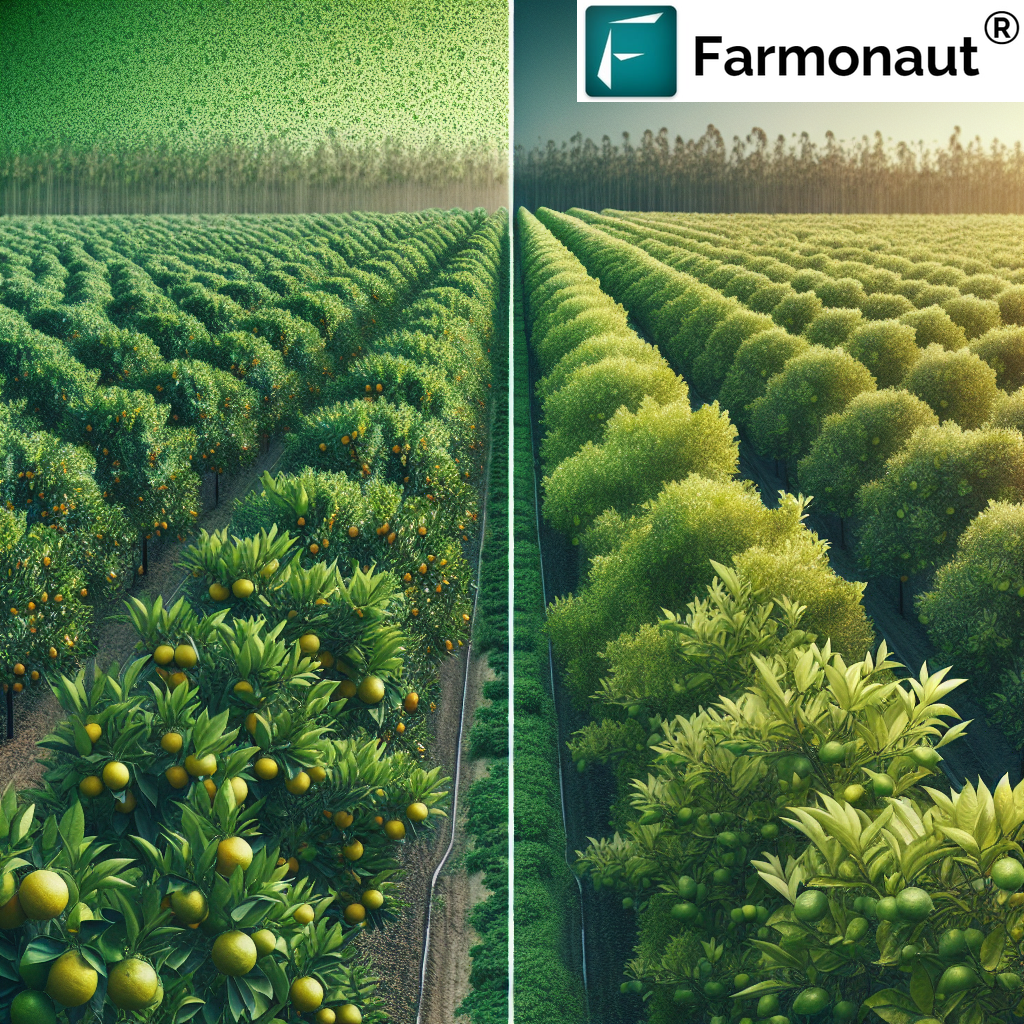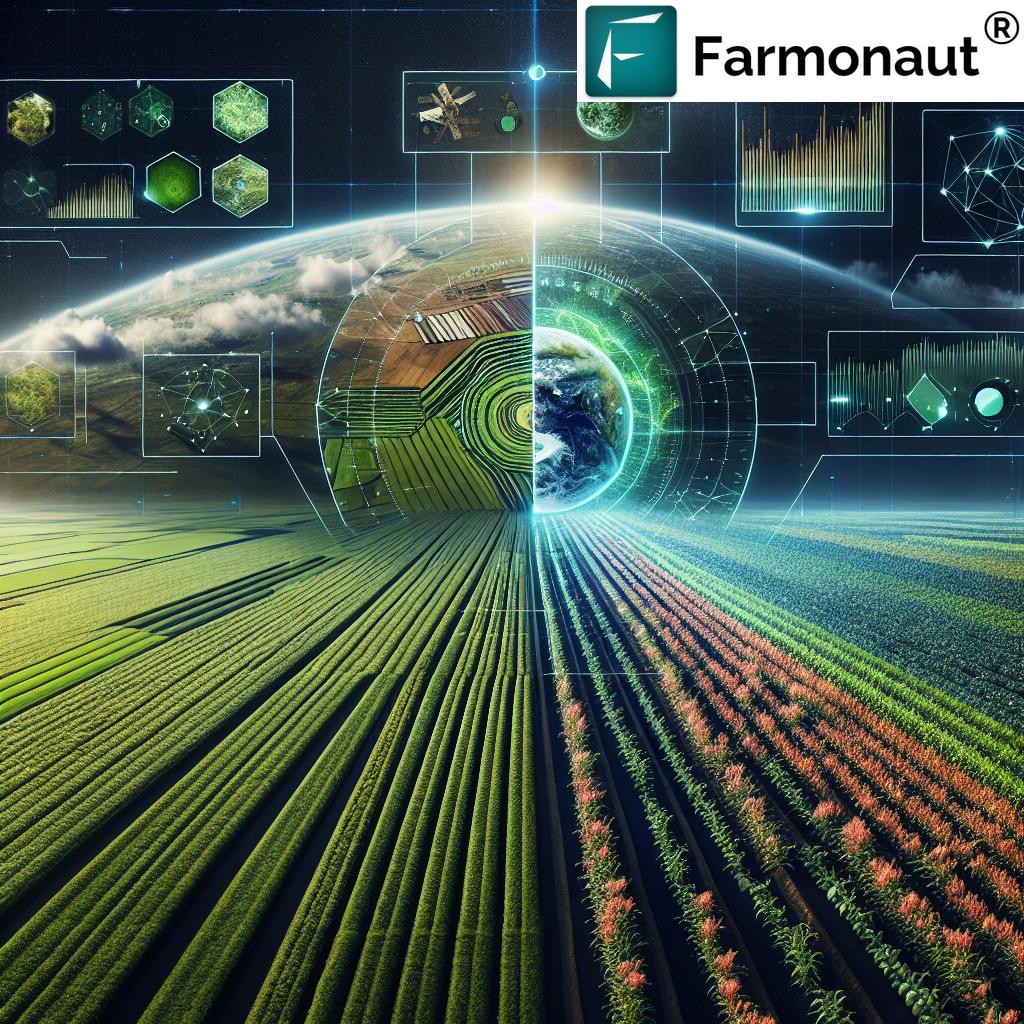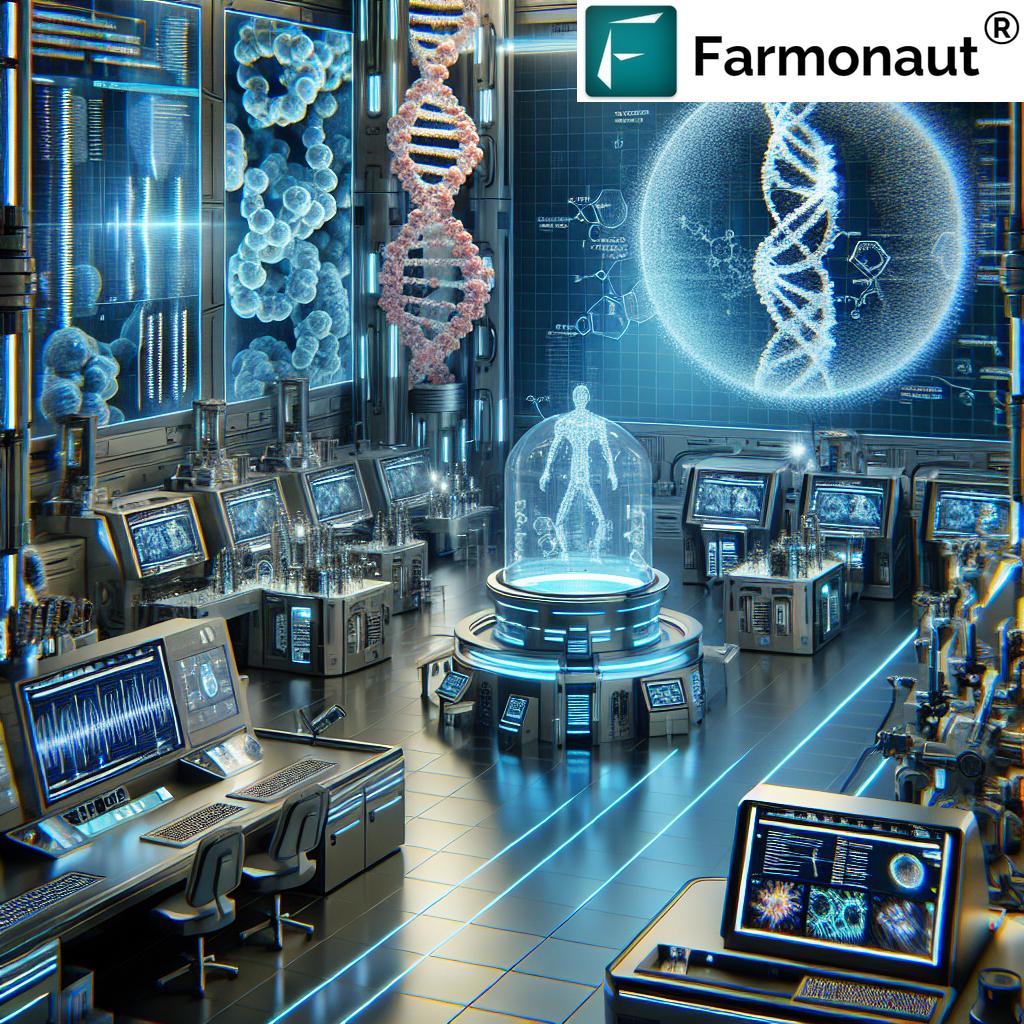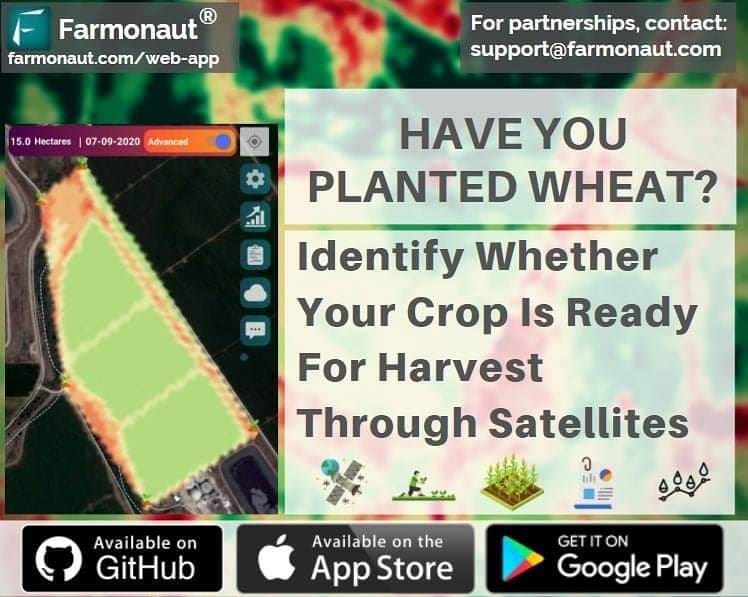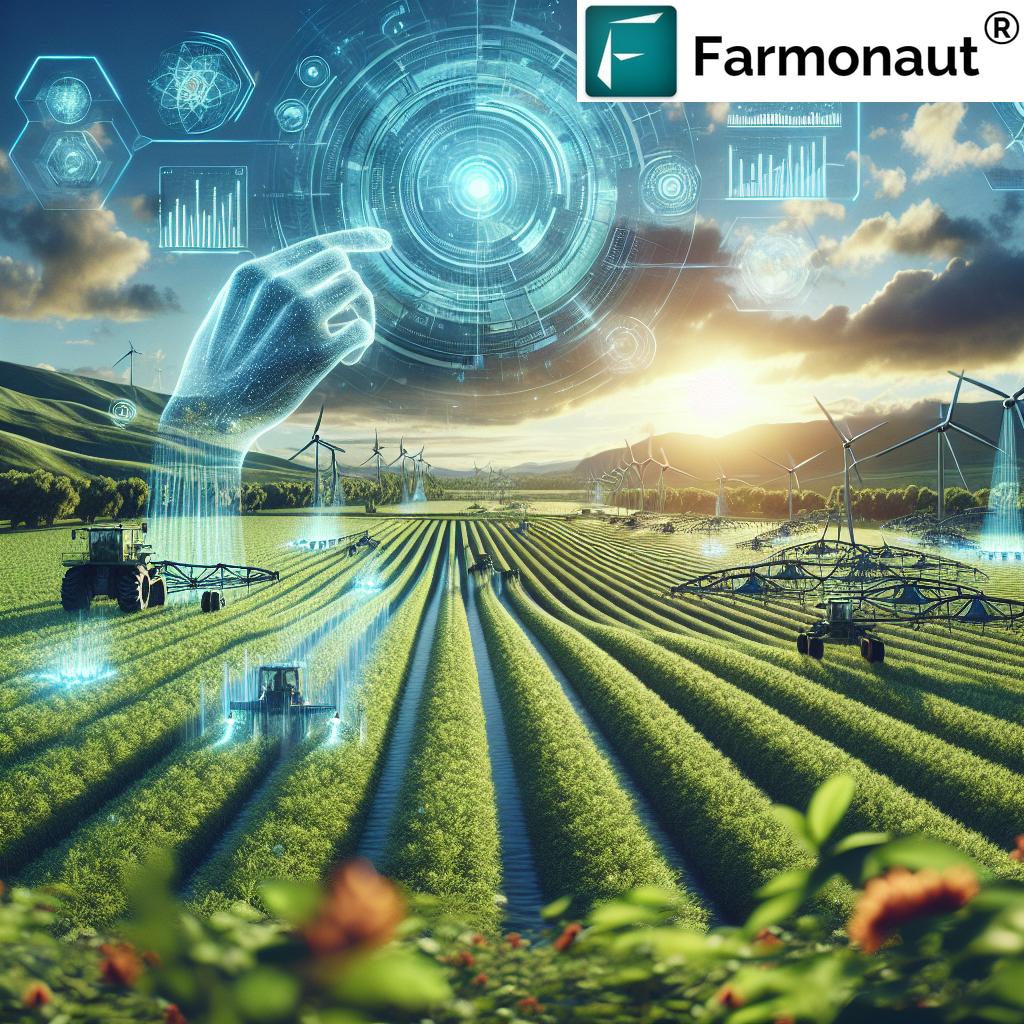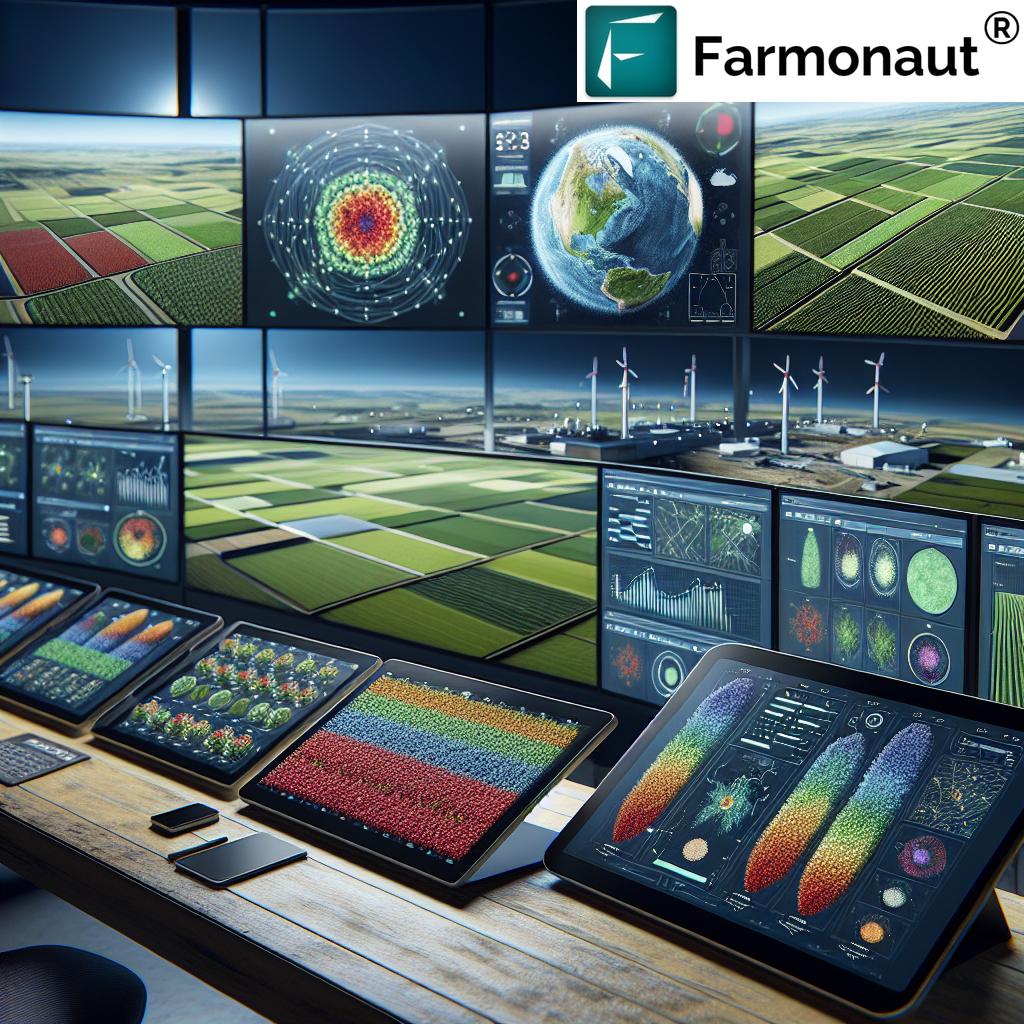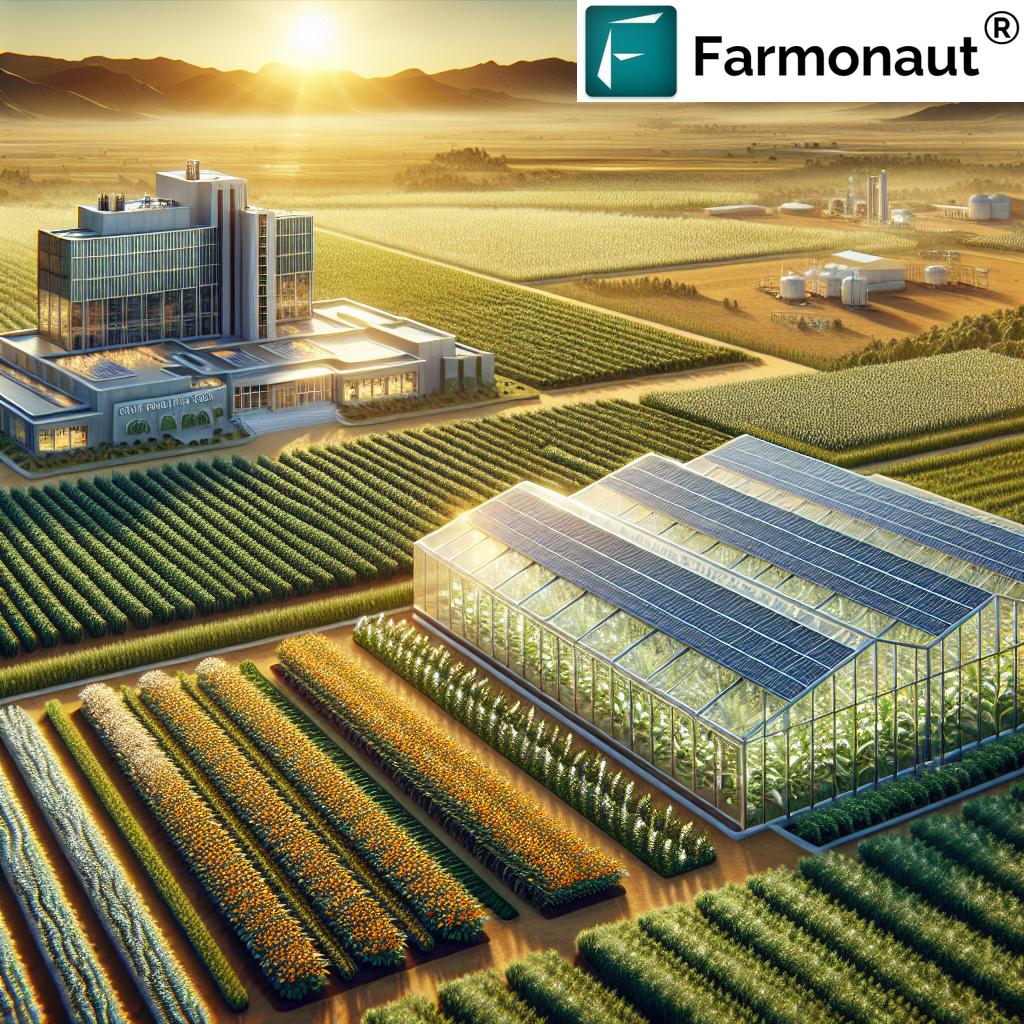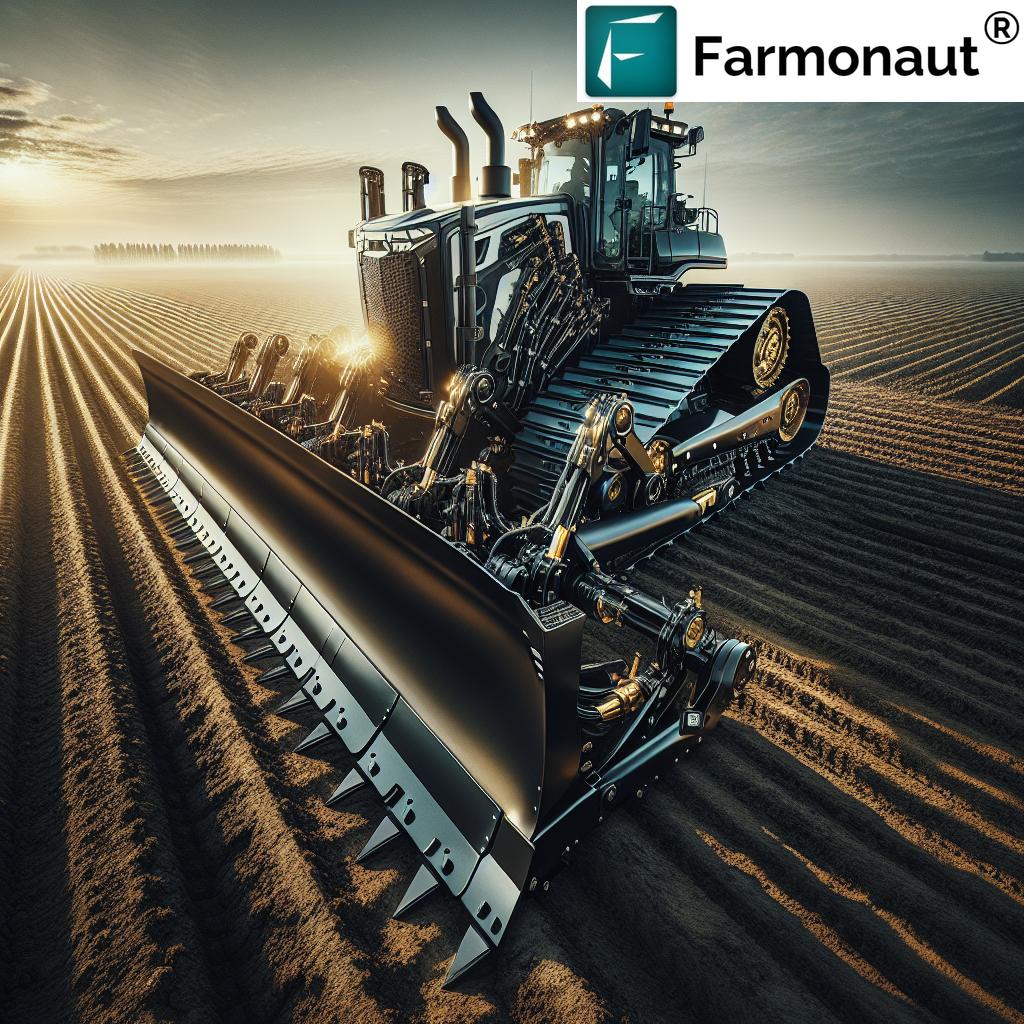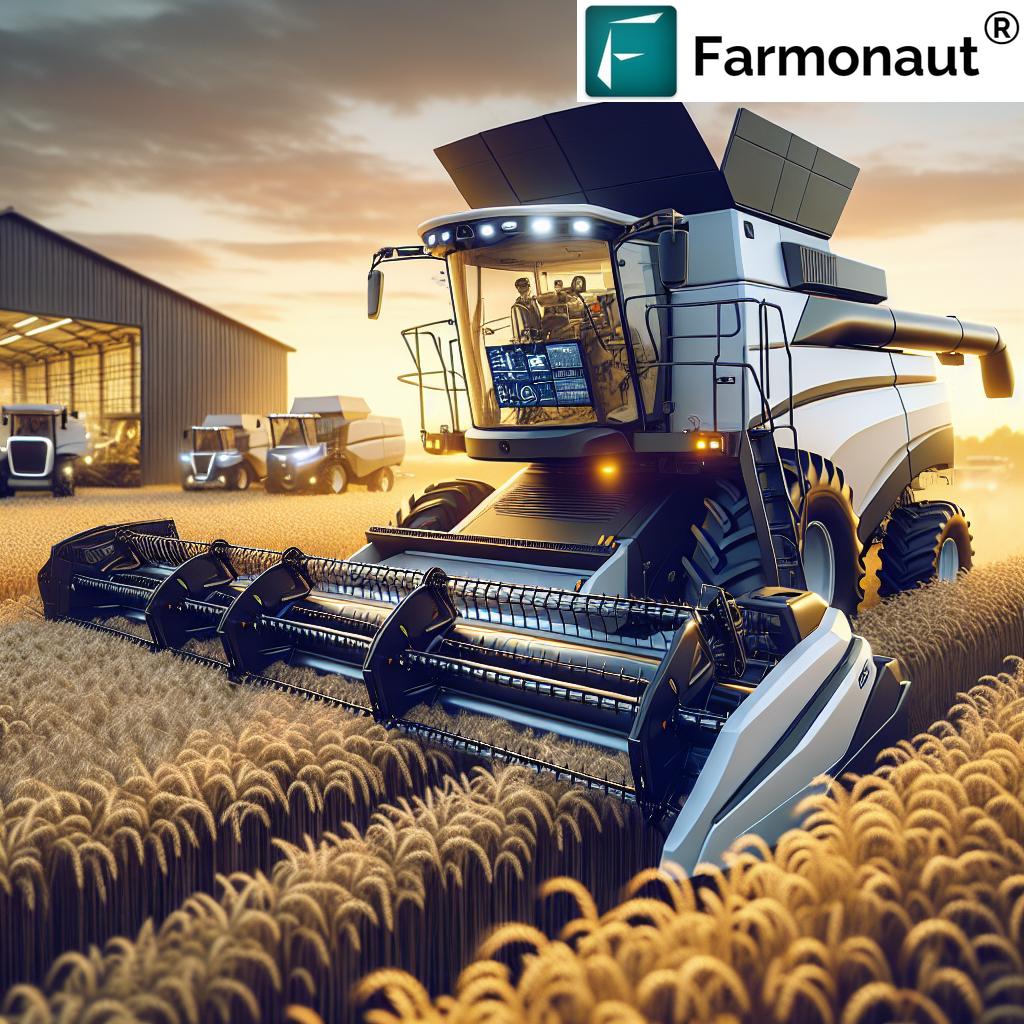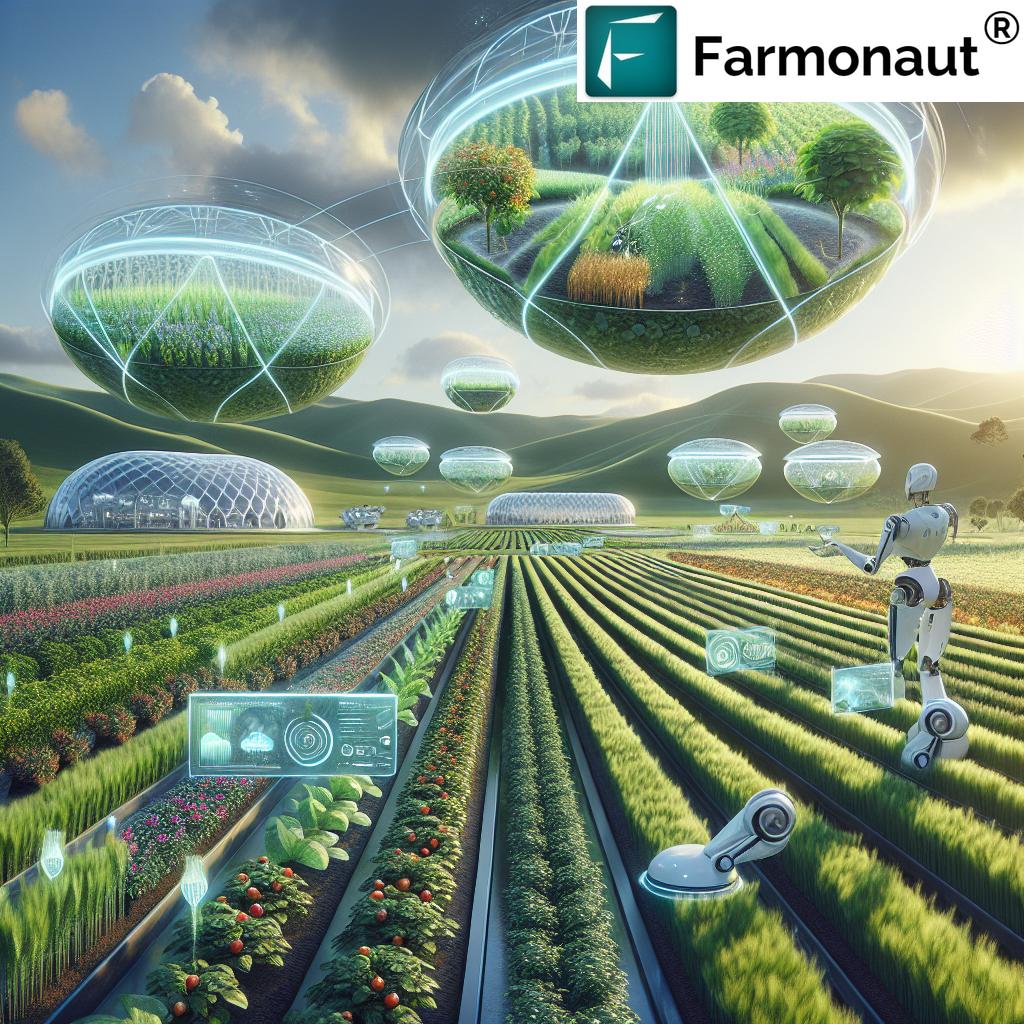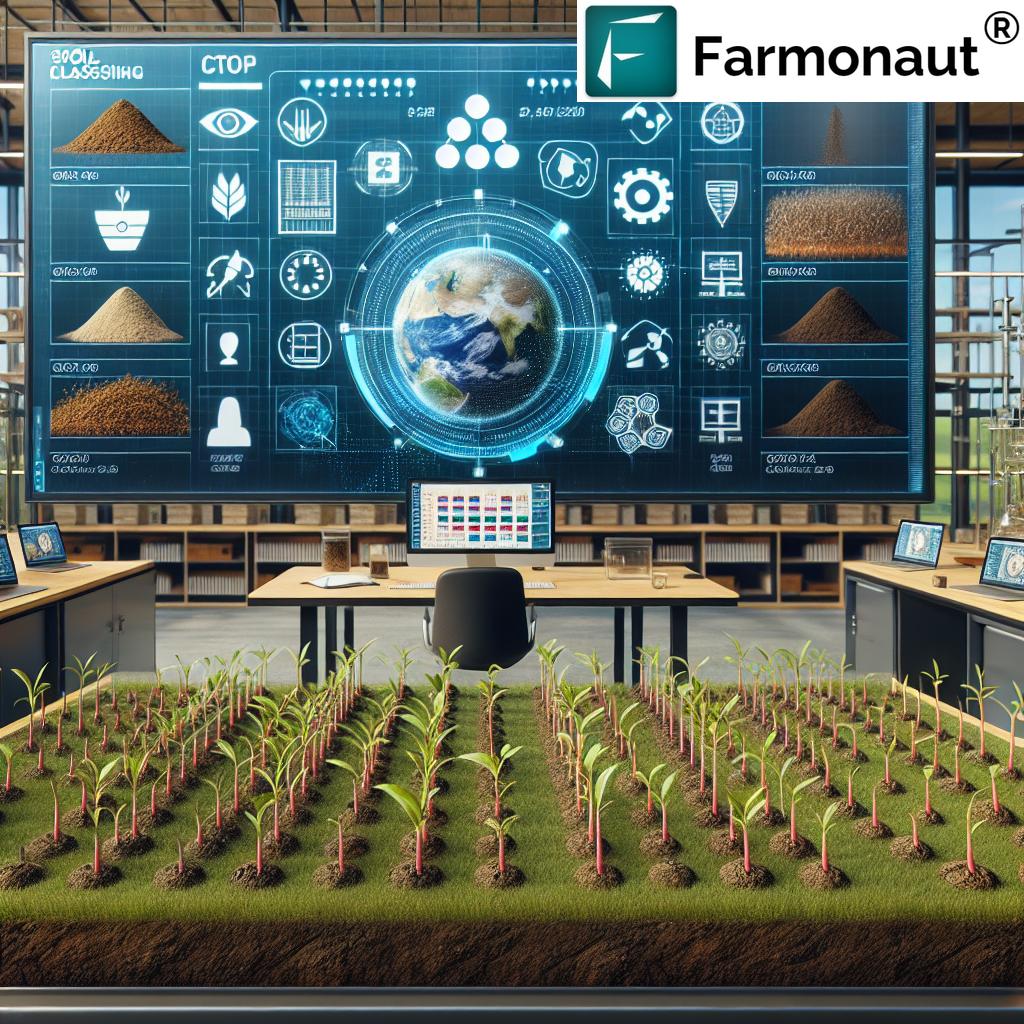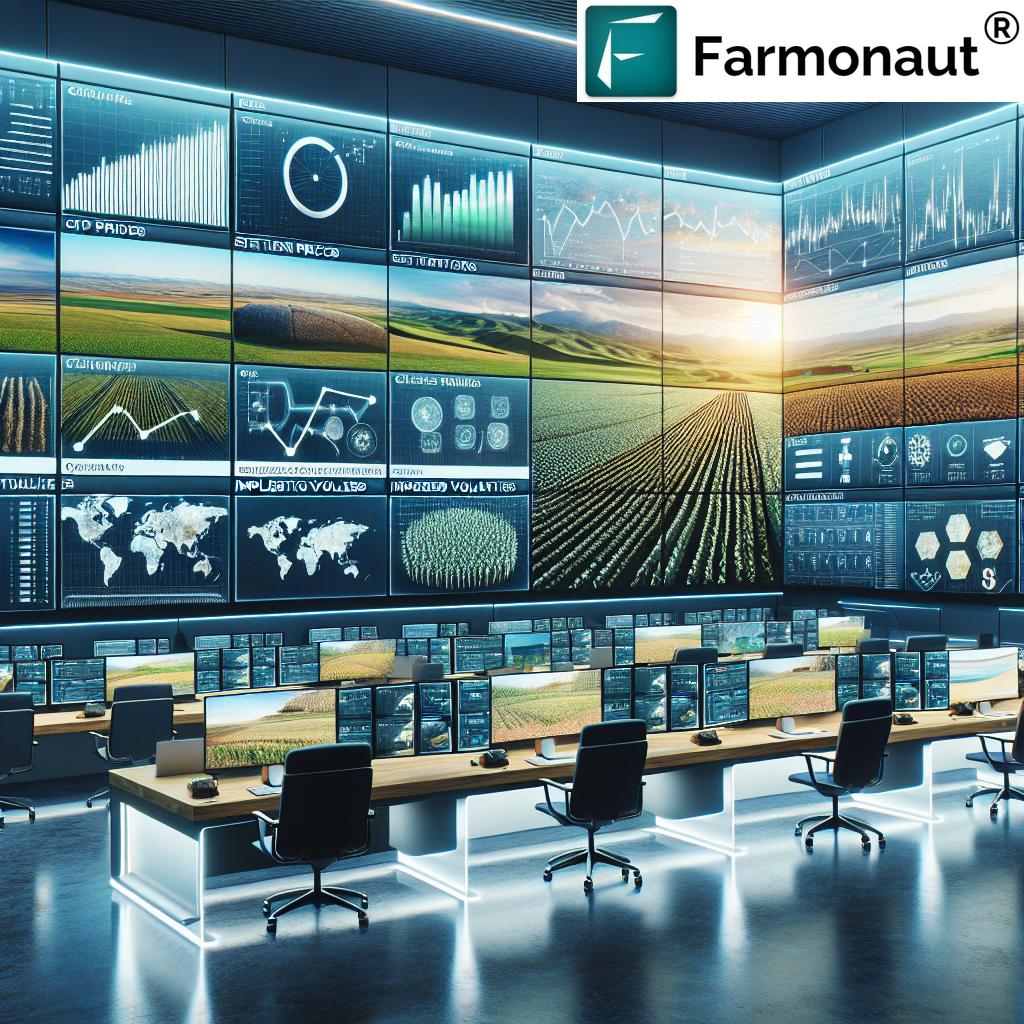AI for Sustainable Agriculture: 7 Shocking Yield Boosts
Introduction: AI Revolutionizing Sustainable Agriculture
Artificial Intelligence (AI) is fundamentally reshaping sustainable agriculture—bringing unprecedented efficiency, resource conservation, and environmental stewardship to the forefront of modern farming. By integrating AI technologies like machine learning algorithms, satellite data, and real-time analytics into our agricultural practices, we are unlocking new dimensions of precision farming, crop monitoring, and soil health management.
As the world’s population grows and climate change creates unpredictable weather patterns, our dependence on sustainable agriculture solutions and technological innovation becomes not just desirable, but necessary. Through this comprehensive guide, we dive deep into the top seven AI applications that have delivered shocking yield boosts—from precision resource management to climate-smart farming, from supply chain optimization to empowering smallholder farmers globally.
1. Precision Resource Management: Minimizing Waste, Maximizing Yields
Revolutionizing Inputs with AI in Agriculture
Precision resource management is the backbone of AI in agriculture, helping us optimize the use of water, fertilizers, and pesticides much more efficiently than ever before. AI-driven systems collect and analyze data from soil sensors, weather forecasts, and crop health indicators, providing clear, actionable prescription maps for resource application.
- Smart Irrigation: With AI, irrigation schedules are dynamically adjusted based on real-time soil moisture levels and weather predictions. This minimizes water waste and ensures that crops receive water only when it’s needed, directly improving yields and conserving a vital resource.
- Targeted Fertilization: By analyzing nutrient needs across different zones of a field, AI creates detailed prescription maps. These enable variable-rate application equipment to deliver the right amount of fertilizer, precisely when and where it’s required—optimizing crop growth and reducing costs.
- Pesticide Efficiency: AI technologies detect the presence of pests and diseases early, guiding the variable application of pesticides only to affected areas, cutting down on chemical waste and environmental exposure.
According to datasumi.com, this approach not only minimizes input costs and lessens environmental impact, but also significantly enhances crop yields through optimal resource allocation.
For those seeking advanced, satellite-driven precision farming technologies, Farmonaut’s Large Scale Farm Management platform provides managers with the tools to monitor multiple fields, generate comparative prescription maps, and track input usage across extensive acreages—delivering both sustainable and scalable solutions.
2. Crop Monitoring and Disease Prevention with AI
Unlocking Value with Real-Time Crop Disease Detection
Crop monitoring with artificial intelligence has become a key force in sustainable agriculture. By leveraging drones, satellite imagery, and visual processing algorithms, we gain the ability to monitor crops in real time—spotting early signs of crop diseases, pest infestations, and nutrient deficiencies.
- Immediate Interventions: AI-driven machine vision rapidly processes vast amounts of visual data to detect anomalies in color, texture, or growth rates, flagging problems often invisible to the naked eye. This proactive approach enables targeted interventions that reduce yield loss and minimize widespread pesticide use.
- Predictive Prevention: By analyzing historical data and current conditions, AI algorithms can predict disease outbreaks and recommend timely preventive treatments, curbing potential crop losses before they escalate.
Farmonaut’s satellite-based crop health monitoring delivers these capabilities to every farmer—leveraging multispectral analysis for vegetation health (NDVI), moisture stress, and much more (details). Mobile and web-based reports make it easy to stay on top of field health from anywhere.
Reference: womentech.net
3. Automated Weed Control: Smarter Fields, Fewer Chemicals
AI-Powered Weed Control: A Greener Approach
Weed management is one of the oldest challenges in farming. In the past, vast quantities of herbicides were the norm, leading to environmental concerns and chemical resistance. Today, AI-powered weed control is changing this paradigm forever.
- Clever Identification: Advanced AI systems, using machine learning and high-resolution visual sensors, quickly distinguish between target crops and unwanted weeds with precision.
- Targeted Elimination: Autonomous robots can selectively remove or treat weeds, drastically reducing chemical usage and preserving soil health and beneficial species.
- Environmental Impact: This approach supports sustainability by reducing reliance on chemical herbicides, keeping surrounding ecosystems healthier and saving money for farmers.
Reference: womentech.net
For farm operators focused on sustainability, combining Farmonaut’s Carbon Footprinting solutions with real-time AI-driven insights helps quantify environmental impact and guides the adoption of greener practices across every stage—from weed control to harvesting.
4. AI in Soil Health Management for Sustainable Growth
Advancing Soil Health Management with AI
The foundation of all agricultural productivity lies in the health of the soil. Soil health management with AI ensures we monitor and maintain optimal conditions for crop growth with unparalleled accuracy.
- Comprehensive Analysis: By collecting data from soil sensors (measuring moisture levels, pH, nutrient concentration, organic content, and microbial activity), AI engines build a complete soil profile for each field or zone.
- Tailored Recommendations: Using this detailed information, AI-based advisory systems offer personalized, field-specific guidance on irrigation, fertilization, and crop rotation.
- Resource Efficiency: This approach helps us sustain long-term soil fertility, support biodiversity, and optimize input use—ensuring both immediate yield boosts and enduring productivity.
According to datasumi.com, AI-empowered soil health management can reduce fertilizer usage by 20% without declining crop productivity, directly promoting sustainability and profit.
Farmonaut’s Jeevn AI Advisory System exemplifies this, analyzing satellite imagery and agronomic data to provide real-time, actionable recommendations to every farmer, increasing efficiency and environmental stewardship (Read more).
5. Livestock Management and Animal Welfare Through AI
AI Applications for Healthy, Productive Livestock
Livestock management is another domain where AI applications are revolutionizing efficiency and productivity. With sensors and data-driven algorithms tracking animal health, behavior, and feeding patterns, farmers benefit from reliable, real-time insights.
- Early Disease Detection: Monitoring physiological indicators and behavioral shifts allows AI algorithms to detect signs of disease long before visible symptoms emerge, enabling early intervention and reducing the spread of illness.
- Optimized Feeding: By analyzing intake patterns, AI ensures herds receive balanced diets to support growth and productivity, avoiding waste and improving animal welfare.
- Reduced Antibiotics: More precise health monitoring means fewer blanket treatments with antibiotics, supporting both food safety and public health.
Modern fleet and resource management tools, such as those provided by Farmonaut Fleet Management, let us remotely track and optimize our farm machinery and logistics—key for managing complex livestock and mixed-farming systems efficiently.
Reference: womentech.net
6. Supply Chain Optimization: Efficient, Transparent, Greener
Agricultural Supply Chain Optimization with AI
Our crops don’t just need to grow—they must reliably reach consumers. AI-driven agricultural supply chain optimization uses historical yield data, weather forecasts, and market trends to make the route from field to plate smoother, greener, and more profitable.
- Precise Demand Forecasting: Advanced algorithms analyze data to predict demand, helping us make strategic decisions about when to harvest, store, and sell.
- Smart Logistics: AI recommends optimal transportation routes, reducing logistics costs, fuel use, and perishability—all vital for sustainability and reducing environmental impact.
- Minimized Food Waste: With accurate market forecasts and inventory management, we consistently reduce food losses from surplus or spoilage.
- Transparent Traceability: As consumers and regulators demand to know their food’s origins, integrating Farmonaut’s Blockchain-Based Traceability solution ensures we offer verifiable, transparent product journeys—building trust and reducing the risk of fraud.
Reference: blockchain-council.org
7. Climate Change Mitigation & Smart Farming with AI
Using AI Technologies for Climate Change Resilience
Climate-smart farming is indispensable as the world faces erratic weather patterns and intensifying environmental challenges. AI applications harness vast datasets (including soil, crop, and climate data) to predict weather events and guide adaptive farming practices.
- Drought-Resistant Strategies: Machine learning algorithms identify optimal crop varieties for drought or flood-prone regions and prescribe planting schedules that maximize survival and yield.
- Carbon Footprint Tracking: Modern systems, like Farmonaut’s Carbon Footprinting module, help us monitor and reduce greenhouse gas emissions from our operations, supporting regulatory compliance and climate stewardship.
- Real-Time Adaptation: From optimizing irrigation before heatwaves to shifting input strategies in response to unexpected rainfall, AI empowers us to adapt operations to changing conditions, preserving yield and resource efficiency.
Reference: ft.com
Comparative Impact Table: AI Applications in Agriculture
| AI Application | Method / Technology Used | Estimated Yield Improvement (%) | Sustainability Benefit | Example Crop/Application |
|---|---|---|---|---|
| Precision Resource Management | AI-driven sensors, prescription maps, variable-rate application | 20-30% | Minimizes waste, reduces input costs | Cereal grains (wheat, rice, maize) |
| Crop Monitoring & Disease Prevention | Drones, satellite imagery, real-time analysis | 10-15% | Reduces broad-spectrum chemical use | Fruits, vegetables |
| Automated Weed Control | Robotics, machine vision, targeted sprays | 5-10% | Reduces herbicide reliance | Soybean, corn |
| Soil Health Management | Soil sensors, AI advisory systems | 5-20% | Maintains fertility, reduces fertilizer use | Potatoes, cotton, other row crops |
| Livestock Management | Health sensors, AI feeding analysis | 10-12% | Improves animal welfare, food safety | Cattle, poultry, dairy |
| Supply Chain Optimization | Market forecasting, AI logistics | 5-8% | Reduces waste, carbon footprint | All major crops & livestock |
| Climate-Smart Farming | Big-data climate prediction, carbon tracking | 3-7% | Improves resilience, reduces emissions | All regions and crops |
Empowering Smallholder Farmers with Artificial Intelligence
AI in agriculture is not just for mega-farms—its power lies in democratizing farming intelligence for everyone. Smallholder farmers, especially in developing regions, have much to gain with affordable, user-friendly AI-powered advisory tools.
- Mobile Applications: Access to real-time farming advice, local weather forecasts, and market insights directly on smartphones helps farmers make informed decisions—from planting to harvest.
- Debt Reduction & Stability: AI guidance promotes best practices, improving yields, reducing input costs, and enhancing financial resilience.
- Global Food Security: Scaling AI adoption in smallholder communities supports global efforts for sustainable food production and environmental protection.
Initiatives and platforms like Farmonaut’s—delivered via Android, iOS, web app, and API—make it possible for every grower to benefit from satellite-based, AI-enhanced decision support. See the next section for quick access links and mobile apps.
Reference: reuters.com
Challenges and Considerations in AI Adoption
While AI for sustainable agriculture delivers tremendous potential, we must also acknowledge key challenges:
- Cost & Access: Advanced technologies can be expensive and may not be accessible in all regions—especially for smallholder farmers without sufficient infrastructure or training.
- Training & Literacy: Adoption depends on digital literacy and access to reliable networks and devices. Empowering communities with training is vital for widespread benefit.
- Data Privacy & Security: As farms become data-driven, protecting personal data and sensitive business information becomes essential to foster trust and compliance.
- Tailored Solutions: Not all farms are alike; AI systems must be adaptable and customizable to meet specific needs and local contexts.
Overcoming these hurdles requires collaborative industry commitment, simplified interfaces, flexible subscription models, and ongoing farmer support.
Farmonaut: Pioneering AI for Sustainable Agriculture Solutions
As a pioneering agricultural technology company, Farmonaut is fully dedicated to maximizing the impact of AI in agriculture for growers of every scale.
Farmonaut’s Core Technologies:
- Satellite-Based Crop Monitoring: Regular, detailed multispectral images reveal crop health, soil moisture, and resource needs with high precision, empowering precision farming technologies for everyone.
- Jeevn AI Advisory: Our AI-based system merges satellite data with local conditions, delivering personalized, real-time recommendations on crop management, fertilizer application, pest control, and irrigation. (Learn more about Jeevn AI)
- Blockchain Traceability: Seamlessly embed farm-to-table transparency with Farmonaut’s Traceability Solution, safeguarding product identity for businesses and boosting consumer confidence.
- Fleet & Resource Management: Track vehicles and optimize logistics for large-scale operations, improving cost efficiency and reducing environmental impact.
- Carbon Footprinting: Quantify, monitor, and reduce greenhouse emissions directly from the platform (details).
- Crop Loan and Insurance Support: Enable faster, more secure loans and insurance through satellite-based verification, strengthening financial access for all farmers.
Business Model & Value Proposition:
- Accessible and Affordable: Farmonaut offers cost-effective, subscription-based access for everyone—from individuals to governments—over web, mobile, and API.
- Modular & Scalable: Select only the features you need. Expand as your farm or agribusiness grows.
- Trust & Transparency: Blockchain, open-data, and secure infrastructure underpin trust for all supply chain participants.
- Empowerment: Mobile apps and simple dashboards help individual farmers harness AI insights in their day-to-day decisions—supporting agricultural productivity, environmental stewardship, and global food security.
Farmonaut is more than a platform—it is a mission-driven team empowering the next generation of sustainable agriculture worldwide.
Easy Access to Farmonaut’s Tools (Apps & API)
API Access: Want to plug Farmonaut’s AI-powered satellite and weather analytics into your software? Use our API or browse the API Developer Docs for fast integration with your agri-solution.
Frequently Asked Questions (FAQ)
How does AI actually boost agricultural yields?
AI uses data analytics (from sensors, drones, satellites, and historical records) to deliver real-time, precise decisions for each field and crop. This approach ensures optimal input use, early problem detection, and sustainable management—all leading to higher yield and better resource conservation.
Are AI-powered solutions only for large farms?
No. Platforms like Farmonaut are designed to be scalable and affordable. Smallholder farmers benefit through mobile apps, easy-to-understand insights, and flexible subscriptions—making precision farming technologies accessible to all.
Is my farm’s data secure when using AI systems?
Secure data handling is a core requirement. Trusted providers employ encryption, secure cloud storage, strict privacy controls, and only use data for improving farm outcomes—not for resale or misuse. Blockchain-based traceability further enhances security and transparency.
How quickly can I see results after applying AI technologies?
Yield and efficiency gains may be observed within a single season, especially for those using AI-driven irrigation, crop monitoring, or disease detection. Long-term benefits (like improved soil health and resource efficiency) continue to accrue with sustained usage.
What kind of support is available if I’m new to AI in agriculture?
Many providers, including Farmonaut, offer easy onboarding, tutorials, and ongoing support for users at every skill level. Training resources help ensure that every farmer can leverage the power of AI for sustainability and profit.
Conclusion: The Path to Sustainable Yield Boosts
The integration of AI in agriculture is revolutionizing our approach to growing, monitoring, and distributing food. These seven shocking yield boosts—from precision farming technologies and real-time crop disease detection to soil health management and climate-smart farming—underline how artificial intelligence is driving unprecedented gains in both productivity and sustainability.
By leveraging data, technology, and innovative business models, platforms like Farmonaut are making it possible for every grower to join this revolution—cost-effectively, securely, and at scale. Whether managing 2 hectares or 20,000, every farmer can now make more informed decisions, conserve precious resources, and optimize yields in a changing climate.
As we embrace these sustainable agriculture solutions, our collective future becomes brighter—healthier soils, richer harvests, fairer supply chains, and a planet preserved for generations. The path forward is clear: AI is not just a tool, but the new foundation of sustainable agriculture.









